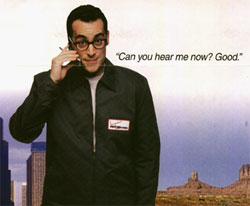
Image Credit: https://uwioss.com/2016/01/22/efc-tip-8-do-your-research/
Whether you’re writing a historical or modern or fantastical or futuristic scifi novel, do your research. If your character listens to the radio in World War II, what exact kind of reports are they listening to? Is there music? Which songs, what genre, what is the character’s opinion of it and does it contrast with the historically recorded attitude? (You don’t necessarily have to pump all this information at once. Or at all. But if you choose to include that detail about the radio, then it’s significant in some way and it does contribute to the character’s definition.) If you’re writing a CIA spy novel, what screening process do people actually have to go through now to enter the CIA? Would your character have to worry about it or not?
Even in completely invented settings, the details matter. You won’t have to do much concrete research, but do consider that while you don’t care about the economical structure of the futuristic dystopia that you’ve invented, or maybe the specifics of swordsmanship are irrelevant to your medieval-esque fantasy, someone will question it. The issue of how your characters make money or whether money is even extant matters. A saber is not an epee is not a foil is not a broadsword, and certain actions simply can’t be done with a broadsword. If you just wing it, your novel will lose credibility.
A common Terry Pratchett Discworld theme to keep in mind: people can accept a large, improbable event in your characters’ lives, but they more readily notice and reject wrong (or missing) details.
On researching while you write: inevitably, you will come up with extra scenes or maybe change a character’s profession to better suit your novel. It’s easy to Wikipedia whatever details you want to add, but of course that usually devolves into lost hours clicking around on Wikipedia. Sci-fi writer Cory Doctorow uses this tip: when you come to a point that needs research, just type “TK” where your facts should be. The combination of the letters “TK” is rare in the English language, so you can do a quick document search at the end of a writing session to find where you need to fact-check.
Sidebar: Excellent places in the city to research:
The National Archives (201 Varick Street)
Houses or has access to all government-related archives in American history. Excellent collection of primary sources, from genealogy to previously passed economic policies. Good for historical American novels or more general research on political intrigues. Call ahead if you want to use an archived material in person.
The New York Public Library (Main Branch on 42nd Street and Fifth Avenue)
Holds archives on several different topics in its various branches; art and architecture at the Main Branch; Performing Arts in the Lincoln Center Branch; science and business at 188 Madison Avenue branch. Great for reading in general, but especially good for nailing down the details in your settings. Protip: The Main Branch also has a huge collection of original manuscripts from interviews with common New Yorkers to the papers of writers such as Truman Capote and James Joyce. It’s worth checking out, but if you want to take notes, use the paper and pencil provided. The librarians will not hesitate to throw you out if you write in pen. Or use your own notebook.
Central Park (Central Park)
Work on your tan and eavesdrop on passing conversations. There’s no limit to the topics that people willingly discuss in public, and it’s a great way to pick up and squirrel away some idiosyncrasies of humanity.
American Museum of Natural History (200 Central Park West)
Scads of scientific information, as well as physical reproductions of animals existing and extinct, an exhibit about space, and everything in between. Iron out the scientific justifications for your aliens’ appearances (as H.G. Wells does in War of the Worlds), or visualize your nomadic protagonist trekking across the sweeping savannahs of Africa.
International Travels (Various)
Not writing your novel on Americans? Have a love affair with Western Europe (like T. S. Eliot) or perhaps East Asia (like Pearl S. Buck)? Well, sometimes, it’s nearly impossible to get a feel for your (Earth-bound) setting unless you actually physically visit. The importance of small details in daily life, like tipping in restaurants or physical proximity to country borders or a country’s layout around bodies of water, aren’t prominent until you have to deal with a different system. (Did you know that microwavable burritos are not common in England? If your British character gets the munchies, kebabs or fried chicken are more likely.)
By Robin Yang
Robin Yang was one of the Campus Clipper’s publishing interns, who wrote an e-book on how to write a novel. If you like Robin’s writing, follow our blog for more chapters from this e-book. We have the most talented interns ever and we’re so proud of them! For over 20 years, the Campus Clipper has been offering awesome student discounts in NYC, from the East Side to Greenwich Village. Along with inspiration, the company offers students a special coupon booklet and the Official Student Guide, which encourage them to discover new places in the city and save money on food, clothing and services.
At the Campus Clipper, not only do we help our interns learn new skills, make money, and create wonderful e-books, we give them a platform to teach others. Check our website for more student savings and watch our YouTube video showing off some of New York City’s finest students during last year’s Welcome Week.
Become a fan on Facebook and follow us on Twitter and Instagram!





